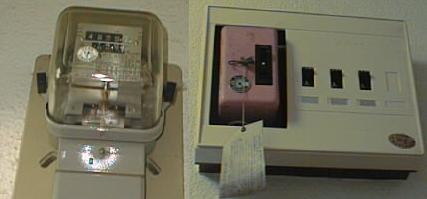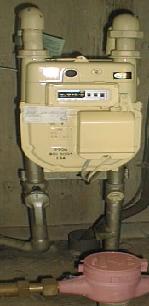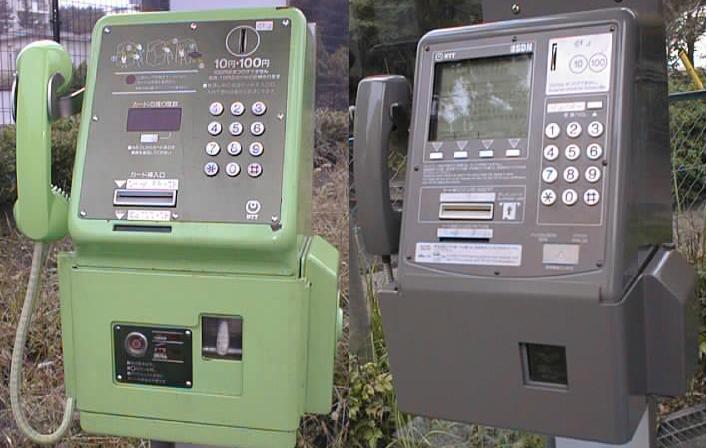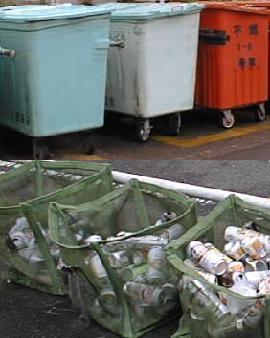
For further details contact:
TOKYO ELECTRIC POWER COMPANY
Customer Service Office
Tel: 03-3501-8111
| PROCEDURES FOR RESIDING IN JAPAN | TELEPHONE |
| EMERGENCY INFORMATION | GAS |
| EARTHQUAKE | TELEVISION |
| HOUSING | WASTE |
| ELECTRICITY | HOUSEHOLD WASTE |
| WATER | RECYCLE CENTERS |
PROCEDURES
FOR RESIDING IN JAPAN
When foreigners wish to take up residence in Japan, they
must obtain a status of residence and period of stay. All together there
are 27 categories of status of residence. Foreigners cannot engage in any
activities not permitted under their status of residence. Each foreigner
is granted a period of stay from the following six types, 15 days, 30 days,
90 days, 3 months, 6 months, 1 year or 3 years, and is not able to stay
in Japan beyond this period without permission. In case the foreigner wants
to stay longer in Japan than the permitted period, he or she must follow
one of the following 5 procedures…..
*Application to engage in activities not permitted under
status of Residence.
*Application for change of status of Residence
*Application for acquisition of status of Residence
*Application for extension of stay.
*Application for Reentry Permit
For more details contact
TOKYO IMMIGRATION BUREAU
1-3-1, Otemachi,
Chiyodaku
Tel 03-3213-8111
JAPANESE NATIONALITY
A foreigner must obtain permission from the minister
of Justice
For more details contact the following address
NATIONALITY DIVISION
Tokyo Legal Affairs Bureau
1-3-1, Otemachi,
Chiyodaku
Tel 03-3214-6231
ALIEN REGISTRATION
All foreigners residing in Japan (except those who have
received permission to enter Japan temporarily purposes, diplomats and
consular officials and their families, and persons staying in Japan under
the Japan – US Status-of-Forces Agreement) are obliged to register as aliens
within 90 days of their entry to Japan, or within 60 days if they obtain
foreign citizenship while in Japan.
FAMILY REGISTRATION
Japan has the family registration system in which an
individual’s personal details, such as birth and marriage, are recorded
on an official document. Foreigners are also supposed to register about
matters as birth and death in Japan in accordance with the Family Register
Law. When Japanese and a foreigner get married in Japan, the marriage must
be registered at the local ward or municipal office according to Japanese
Law.
BIRTH REGISTRATION
When a baby is born, you must carry out the following
procedures
Fire Department Information
Call on 03-3212-2323 in
the 23 wards of central Tokyo and 042-521-2323
in the Tama district. This service provides information on hospitals that
are open on Sundays and national holidays.
Burglary and Accidents
In the time of emergency such as theft, disturbance,
violence, aggressive peddling, when you notice a suspicious behavior, suspicious
sounds such as explosions, gunfire, cries for help, missing child, kidnapping
or illegal parking, call the police at 110
(no prefix or area code)
EARTHQUAKE
Japan is an earthquake prone country. Things to do when
an earthquake occurs…..
HOUSING
Foreign residents in Tokyo usually search for private
apartments through the real estate agents or the advertisements in the
news paper. However, they also are eligible to rent public housing as long
as they meet certain requirements concerning income and other matters.
Public Housing
Foreigners are eligible to apply for housing built and
operated by the Tokyo Metropolitan Government. The applicants must live
in Tokyo at the present time, have a certificate of Alien Registration
and either have been given permission to reside permanently in Japan for
more than 1 year. Applications are usually accepted for vacant apartments
in May and for newly built apartment in October each year. Applications
for occupancy by single mother families, disabled people or elderly people,
who intend to live in Tokyo for 3 years are accepted in the month of June
and December. For details contact 03-5321-1111.
There is also a telephone information service (in Japanese) 03-5320-7820.
Tokyo Metropolitan Housing Supply Corporation
Applications for the vacant houses are accepted every
year at the end of January and July. Foreigners are eligible to apply provided
they have Alien Registration Card and are aged above 20 years. The other
condition is that the applicant should live or work in Tokyo, have family
members living with them or intending to live with them (some houses are
for single persons), and have a certain level of income. Applications
are available at Shibuya, Tel 03-3409-4522,
Mitsukoshi Department store in Ikebukuro and in Matsuya Department store
in Ginza.
Housing and Urban Development Corporation
It accepts applications to rent vacant public housing
between the first and the tenth days of February, May, August and November.
Applications are generally received 2-3 months prior to availability. Application
forms can be purchased at Marui Department store, in Ikebukuro and Sogo
Department store in Yukakucho. For further details contact the Kodan Jutaku
Boshu Center in Shinjuku tel no 03-3347-4375,
Toshima ward Tel no 03-3989-8171 or the Chiyoda
ward Tel no 05-3263-8153.
Renting from a real estate agent
The customs in Japan are different than those in your
country, so you are advised to thoroughly understand the Japanese contract
and living customs here before moving into an apartment. You are advised
to carefully consider the rent you would like to pay, the desired size
and layout of your apartment and the accessibility to transportation. You
should consider the following conditions….
| A representative from the Tokyo Electric power Company will come to shut of the electricity and calculate the remaining charges. Neglecting to do these causes problems in distinguishing your electric bill from that of the person who moves in after you. At your new house you can immediately use the electricity by lifting the amphere and short circuit breakers (in apartment buildings, these are usually installed on the upper wall of the entrance). A post card to notify the electric company will be hanging on the breaker. Fill out the day you started using the electricity and other pertinent information and mail it to the Electricity Company. All the power supplied in Tokyo is 100V, 50 HZ so make sure your electric appliances utilize the correct frequency. Except for outlets for washing machines and refrigerators, the electrical outlets are not grounded. While installing appliances like Air conditioners, additional work is required. | 
For further details contact:
|
GAS
When you have newly moved to a house contact the Tokyo
Gas local office in your area and have the valve opened in order to use
the gas. You can open the valve on the same day even if the Gas Company
has not been notified in advance by calling them in the morning. In Tokyo
only appliances marked “Toshi Gas 13A” can be used. 13 different kinds
of gas are used throughout Japan so make sure your appliance can take the
proper form of gas.
For further details please contact:
TOKYO GAS COMPANY
Customer Service Office
Tel: 03-3433-2111
| When you move to the new house you must intimate the
water department.if the water department is not notified you will be required
to pay the basic fee until they are notified, even though you no longer
use the water. Failure to notify the water Bureau of water usage at your
new address will cause billing problems.
For further details please contact:
|
 |
TELEPHONES
Telephone service requires reservation. In Japan, February,
March and April are particularly busy telephone moving months. During this
make sure that you make your telephone reservation. If you are making international
calls, your name, address and telephone number are on record at KDD or
other companies you use, you should notify them using their toll free numbers.
For further details please contact:
NTT (Nippon Telegraph and Telephone
Company)
Tel: 116
 |
|
TELEVISION
If you want to receive television broadcasts, contact:
NHK
Tel: 0120-151515
WASTE
Approximately 3.37 million tons of waste was incinerated
at refuse plants, 710,000 tons was sent to final landfills and 54,000 tons
of iron and aluminium was recovered during the disposal process for recycling.
Apart from bottles, cans, old furniture and electrical
appliances, our homes usually contain plenty of other things that can be
recycled when we no longer have use or space for them. Sometimes
if you don`t feel like throwing the old fashioned clothes, there are plenty
of organisations in Tokyo who will accept your old clothes as donation.
For details contact:
Salvation Army Men`s Social Center
Tel 03-3384-3769
Japan Thai Friendship Exchange Group
Tel 03-3924-2787
Sanya-kai
Tel 03-3874-1269
Emmaus Haus
Tel 03-3920-9118
Johoku Fukushi Center
Tel 03-3874-9121
Recycle Undo Shimin -no-Kai
Tel 03-3226-6800
Tokyo Goodwill Bank
Tel 03-3235-1161
When your bookshelves starts to overflow and you want
to get rid of the unwanted books, there are places in Japan who are willing
to take your books for money or credits in exchange for what you bring
in.
For further details contact:
Good day Books
Tel 03-5421-0957
Meanwhile in case you are interested in buying the recycled
goods or Souvenirs of Japan, visit some of the city’s many Flea markets.
Check for more information in the
addresses given below….
Citizens Recycle Association
Tel 0180-993355
Japan recycle Movement Civic Association
Tel 03-5228-3320
The Bureau of Public Cleaning does not collect items such as badly smelling gas cylinders, petroleum products, industrial chemicals, fireworks, printing ink, matches, developing solution, car fuel additives. They do not even accept Automobiles, motorcycle, tires and pianos.
For further details regarding the
waste please contact:
Tokyo Metropolitan Government’s Bureau of Public Cleansing
Tel 03-5320-5718
RECYCLE
CENTERS
The word recycle has become very popular in today’s world.
From old furniture to clothes, books, toys and electrical appliances everything
is recycled and put to use again. In Japan there are many recycle centers
that cater to recycling the products. Some of them are given below….
1.Omori Recycling Center Tel 3774-3811
2.Katsushika-Nishi Recycling Center Tel 5670-2992
3.Nakano Recycling Center Tel 3387-2411
4.Honjo Recycling Center Tel 3846-0241
5.Meguro Recycling Center Tel 5704-9254
6.Kinuta Recycling Center Tel 5490-1020
7.Kyobashi Recycling Center Tel 3546-2992
8.Toshima Recycling Center Tel 3910-1031
9.Asakusa Recycling Center Tel 3851-5120
10.Adachi-Higashi Recycling Center Tel 5681-7806
| The Tokyo Metropolitan Government’s Bureau of Public
Cleansing requests that garbage be divided to ensure that it is appropriately
treated. When the residents throw their garbage it is requested to divide
the garbage into 2 categories of combustible and
non combustible waste (waste unsuitable for burning) before placing
bit in the designated collection places on the specified days. Combustible
waste should be put in the bags designated by the Tokyo Metropolitan Government
and non-combustible waste should be put in transparent bags that make the
contents visible.
Water should be drained from the kitchen waste before putting it out. Sanitary napkins and diapers should be wrapped in paper and put in semi-transparent bags. Non-combustible wastes such as spray cans, after emptying it; a hole should be pierced to avoid any explosion during transportation. |

Batteries and cigarette lighters should be placed in the designated bags only. To prevent injuries from broken glass, ceramic items, fluorescent tubes, bulbs and cutlery must be wrapped and labeled “danger”. |
| Living in Tokyo Part 1 | Living in Tokyo Part 2 | Living in Tokyo Part 3 | Living in Tokyo Part 4 | Living in Tokyo Part 5 | Living in Tokyo Part 6 | Living in Tokyo Part 7 | Living in Tokyo Part 8 | Living in Tokyo Part 9 |  |
|
|
|
|
|
|
|
|
|
|
|